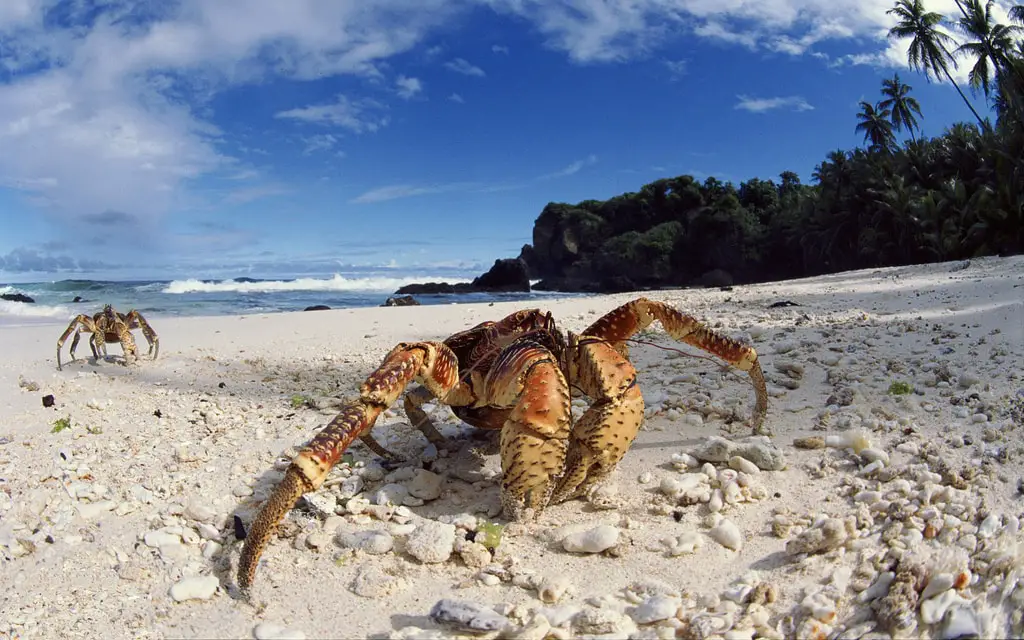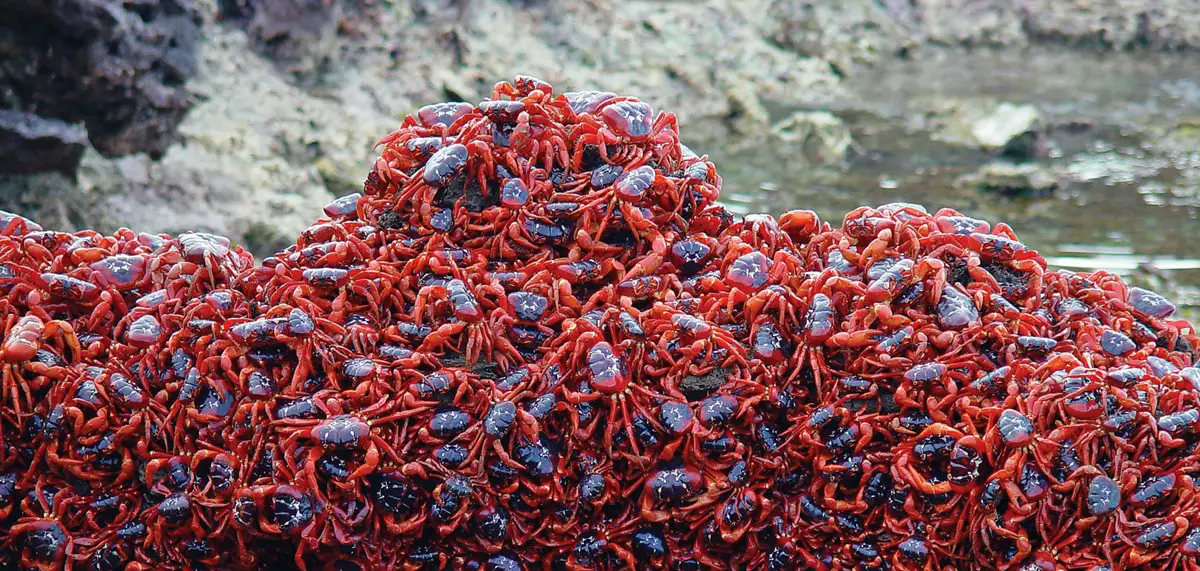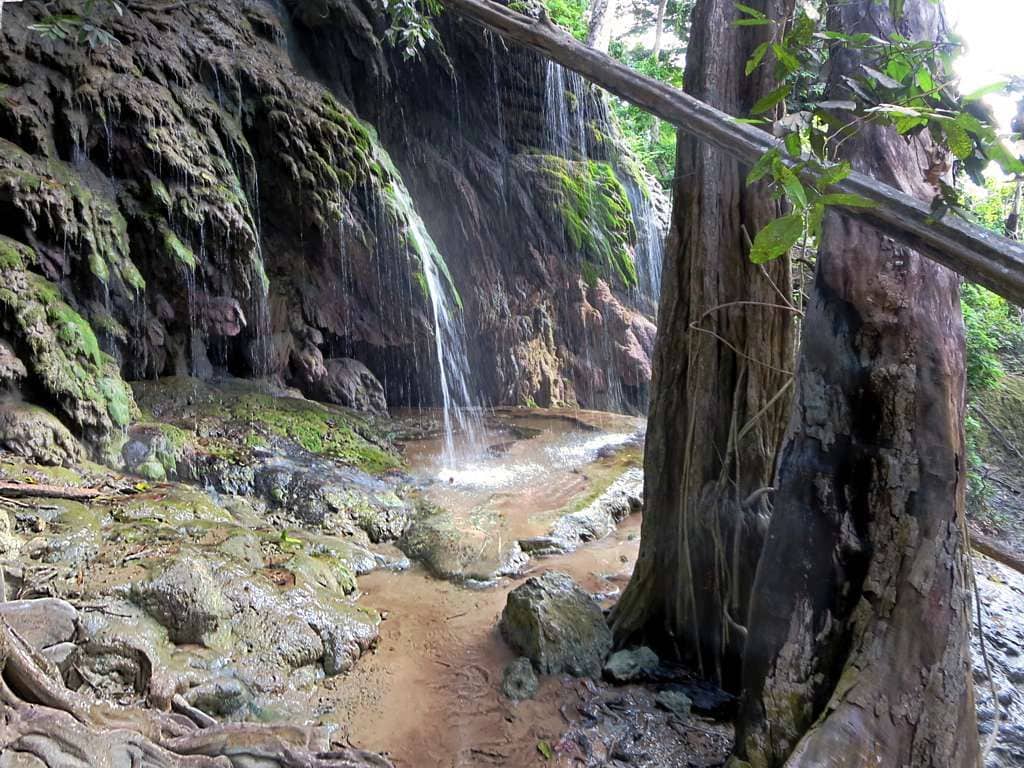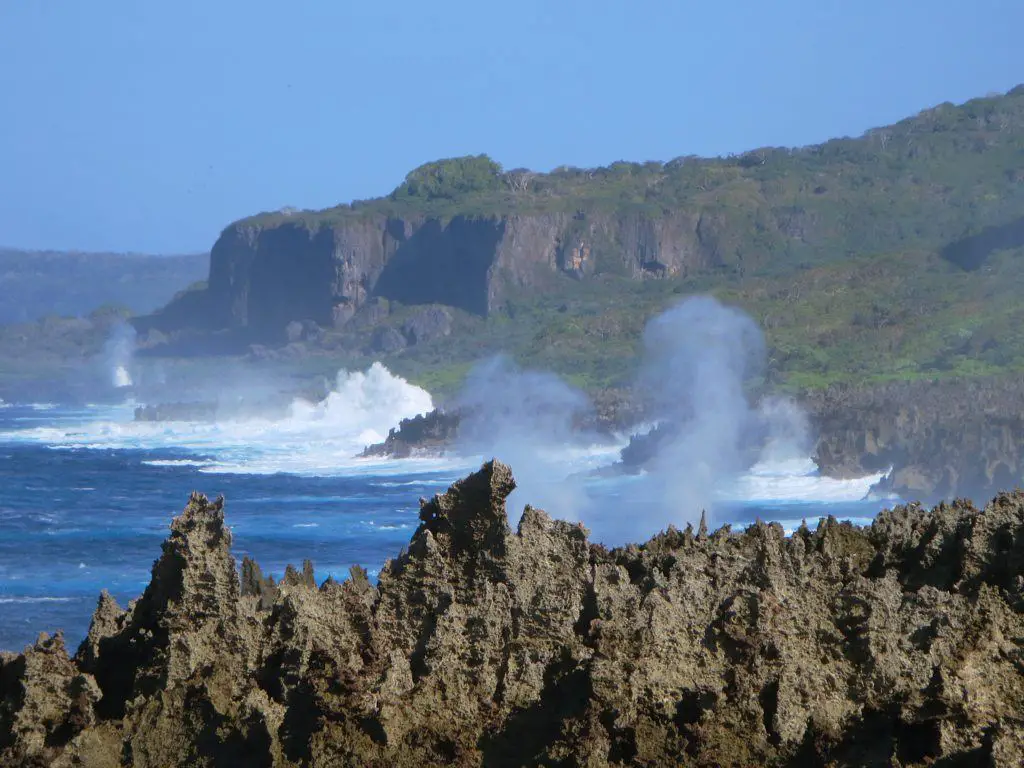Wondermondo 🢖 World 🢖 Wonders of Australia and Oceania 🢖 Wonders of Australia 🢖 Wonders of Christmas Island
Territory
Wonders of Christmas Island

 Highlights
Highlights
Geographically Christmas island is located in Asia, but, as the island belongs to Australia, it is reviewed as a part of Australia and Oceania.
The most amazing wonders of Christmas island are:
- Biological diversity – major part of the island still is covered with primary monsoon forest. Here live numerous rare and endemic species of plants and animals, including five endemic bird species and at least six subspecies, four endemic mammals, five endemic reptiles, more than 190 endemic arthropods. Christmas island contains 14 species of endemic plants, including a rare fern – Christmas Island Spleenwort Asplenium listeri, a tree Grewia insularis, subspecies of stinging tree Dendrocnide peltata var. murrayana.
- Features of karst processes – island contains interesting caves and springs.
Map with the described wonders
If you see this after your page is loaded completely, leafletJS files are missing.
 Top 10 wonders of Christmas Island
Top 10 wonders of Christmas Island
Geological wonders
The Dales of Christmas Island
Seven deep valleys formed by spring streams, closer to the sea turning into deep ravines cut in limestone. Above, at the discharge of springs they have flooded the forest dominated by enormous Tahitian chestnuts (Inocarpus fagifer). These pools in the forest form the largest freshwater basin on the island. Endemic plants.
Daniel Roux Cave
One of the most impressive caves on Christmas island with beautiful cave formations, 560 m long. There are some 30 caves on the island and in them live at least 12 endemic species of animals.
Christmas Island blowholes
The jagged limestone along the southwestern coast of Christmas Island has numerous noisy blowholes. The sight is even more impressive during the mass migration of red crabs.
Cliffs at Steep Point
These vertical cliffs of coral limestone rise up to 60 m tall above sea level. The sea is washing out the cliffs and there are observed occasional, impressive landslides.
Lost Lake Cave
One of the most impressive caves on Christmas island with beautiful cave formations, 3,500 m long. There are some 30 caves on the island, containing at least 12 endemic species of animals.
Full Frontal Cave
Another impressive cave with beautiful cave formations, more than 1,560 m long.
Submarine spring at Grotto
One of several powerful submarine springs near the shores of the island. There are more springs at Steep Point, in Flying Fish Cove.
Biological wonders
Christmas Island crab forest
The forest of Christmas Island is unique in the world due to the dominant species – some 50 – 100 million red crabs (Gecarcoidea natalis) – clearing the forest floor of leaves and other organic matter. These crabs are endemic to Christmas Island. Once per year, they migrate to the sea to lay their eggs, on the way blocking the roads and paths.

Hosnies Spring mangroves
120,000 years old grove of mangroves some 24 – 37 m above sea level. Mangrove ecosystems traditionally grow in shallow seawater – but here, as the sea level decreased, mangroves were fed by springs. This is a unique case in the world. This 3,300 m² large area (core part, 202 ha in size) contains the oldest trees of Bruguiera gymnorrhiza and Bruguiera sexangula – 30 – 40 m tall, with a trunk diameter up to 80 cm. There are mangroves of other species growing well above the sea level elsewhere on the island.
 Recommended books
Recommended books
An Island Called Christmas: A Narrative History
A romantic desert island… Who first saw and went ashore on Christmas Island will never be known. Where these people came from and when is conjecture though we are almost certain they were Polynesians. Seafarers, either castaways, hopeful colonizers, passers-by, or perhaps all of these, were the first to land there probably as early as the eighth or ninth century A.D. Random voyagers traveling north or south between Hawaii and the Marquesas may have used Christmas as a reference island and thus would in all likelihood have steered to the east.



